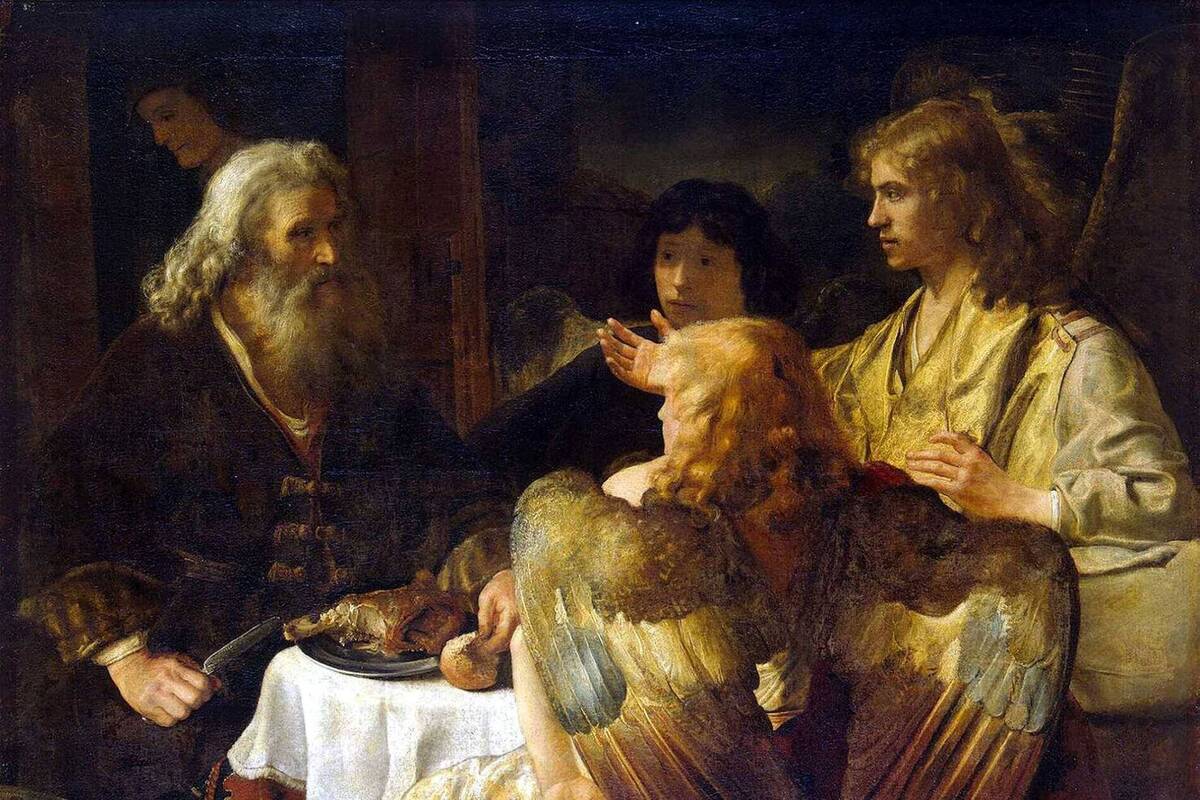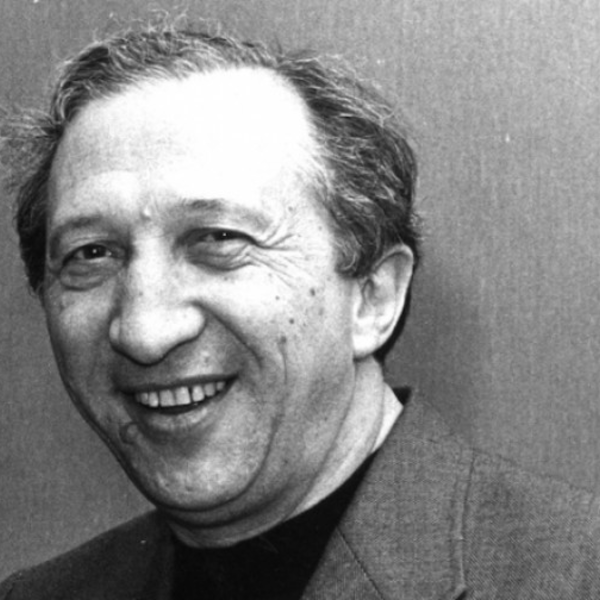Sharing life in a human and Christian way does not require that the conditions of this act be conscious. Most of the time, they live implicitly in our good will—a will that is sustained, especially in difficult moments, by a reasoned explanation.
Therefore, when the Gospel says, “Take heed, watch and pray; for you do not know when the time will come” (Mark 13:33), it means: be conscious of your destiny, of your relationship with God, with the source, the substance, and the end of what you are.
This is the most important premise we must always remember.
I wanted to communicate the value of the implicit and of the unknown to you, because the gift of the Spirit and the grace of God can act within anyone; the Lord is not limited by anything. I also wanted to point out the importance of being vigilant, because the clarity, joy, and peace that come from an act of charity with well-defined aims are unparalleled. I hope to make a small contribution to the clarification of these aims.
If we want to feel ourselves immediately filled with richness in our thoughts, we must always start from this great, primordial truth: that we did not exist and now we do. Therefore, being—living, existing, moving—is participation in something else. How much peace there is in being able to say with clarity (with clarity regarding motivation, not regarding content, which is the mystery that Christ has revealed to us) that everything we do participates in something else! Here are the roots of gratuitousness (gratuità): everything we do and everything we are are given—we participate in something else. I believe that there is nothing more evident than this: that in every instant of our life we do not make ourselves. It is in the vibration of this self-awareness that the possibility of real prayer develops within us.
The root of gratuitousness is all here, precisely because nothing is ours. At the base, I am alluding to what the first page of the Bible says: “Let us make man in our image, after our likeness” (Gen 1:26). This means that the life of the Mystery vibrates and echoes within humanity’s dynamism, according to an immensely distant, yet real analogy. We can draw three conclusions from this.
The Awareness of Being Loved
If we do not feel welcomed or loved in the first place, we cannot share anything. In other words, we cannot make our presence part of another’s presence—we cannot open our presence to welcome the presence of an other.
Here we understand that without God we face our problems without an adequate hypothesis. Because there can be generosity, openness, obedience, a great capacity for “hospitality” (to use a synthesizing word), even if we do not experience a human correspondence in any sense, but we have a clear perception of what is at the origin of this moment: if we live, it is because we are wanted, and if we exist, it is because we are loved.
I said a clear perception, but it could also be an unclear and confused awareness, a hunch or intuition, even in one who would not consider himself religious but who, without knowing it, really is. Whatever the case, without the presence of God on the horizon of our life, we cannot open ourselves in welcome, we cannot dedicate ourselves to sharing, nor can we accept a presence that is not our own and that, precisely because it is not ours, does not coincide with us.
Our behavior is defined by this imitation (“Let us make mankind in our image, in our likeness”) or, like I said, by our participation in something else. For this reason, true religiosity is expressed in the ability to share and to welcome, before anything else and, in a certain sense, before even saying “God.” If we have these things inside of us, it is because we already perceive God, however unconsciously.
In any case, only if we are loved can we love: loved not by the person and in the ways that we may desire, but in a way that is much deeper and more essential. I have understood this in experience. If a child is truly loved by his parents, he knows what love is, he grows up knowing it, even if he is unaware of this knowledge, even if this wisdom (yes, it is a real wisdom) is not reflected by him.
Forgiving Difference
The attitude of hospitality means the forgiveness of difference, which is defined by the Christian word “mercy.”
To better understand the foundations and the motivation for hospitality, we shouldn’t first think of the homeless that we welcome into our house, but of a wife, a husband, or a son as he grows up. If these factors do not emerge in our relationship with them, we are living these relationships blindly; we take them for granted; we are unaware of what is going on.
The word “mercy” indicates welcoming as an energy and a freedom that—like intelligence and affection—overcome the emptiness, the gap, the distance between differences. How amazing it is to think of the infinite distance which God overcame compared to our nothingness. The Bible says: “The Lord appeared to him from afar. I have loved you with an everlasting love; therefore I have continued my faithfulness to you” (Jer 31:3). There is no greater difference than the distance between being and nothingness!
I believe this is an aspect of awareness that needs to be constantly revived in us. If a man welcomes a woman, paradoxically recognizing their difference and embracing her with this awareness, he will never embrace her more fully—he must be aware of this difference and embrace her in this awareness. I am not defining the mercy with which Christ shows us the living God, giving the last word on the living God, but I am emphasizing the striking connection that we are called to live with this mercy, because, as Saint Paul says, “But God shows his love for us in that while we were yet sinners Christ died for us” (Rom 5:8). If he loves us as sinners, imagine how much he must love us when we seek him out and call on him!
Love for the Person
Welcoming and sharing are the only ways to achieve a relationship that is worthy of our humanity, because only in this way is a person really a person, someone who exists in relationship with the Infinite. When speaking of children, Jesus said, “I tell you that in heaven their angels always behold the face of my Father who is in heaven” (Matt 18:10). The path through which this sharing occurs—that is, the welcoming embrace of one presence to another presence—can take any form. Therefore, it can be any path so long as it has a point a quo [from which] and a point ad quem [to which]. The starting point [a quo] can be anything, even a trivial and concrete interest. But the point of arrival [ad quem] is always the person, a being whose angel sees the face of the Father, a being that is a relationship with the Infinite. My embrace of another cannot, then, be exhausted in the reasons for which I initially connected the other to me and accepted him. For this reason, welcoming a poor stranger and welcoming the person we love the most must ultimately be lived with the same gratuitousness, otherwise what should be the greatest thing sadly becomes obtuse and dull.
Participating in the initial Event, therefore, is the source of gratuitousness: within this event, our vigilance and awareness contribute to bringing a clarity and joy which would otherwise be more difficult to achieve.
Only if we are aware that we are loved—with clarity or confusion, implicitly or explicitly—can we love, which means to embrace, to welcome within us, and to share.
The great road we must take to make ourselves similar to the Bible’s image of Christ—who comes to us from eternity, walking among us like a giant on our earth—is in overcoming difference: mercy. Embracing another means embracing somebody different, remembering that God is the different, the ultimate other.
This itinerary of mercy can start from any cue, even the most trivial (the Lord is a master in this through nature), but it must reach a love for the presence understood as a place of relationship with the Eternal, with the Infinite. The point of arrival is the person who has an infinite destiny, who is a relationship with the Infinite.
Methodological Factors
1. Without freedom, there can be no welcoming, but only an illusory invitation—without freedom, the other would feel trapped, used, and exploited. Being fully oneself is what it means to be free. Freedom, therefore, is a necessary condition for the method of welcoming.
This freedom, which I defined as being fully oneself, has precise components. First of all, it regards the awareness of one’s belonging to the Infinite, to the Mystery. The more a person lives his relationship with God, the more he is aware of and recognizes his destiny, and the more he has an affection for being. This affection for destiny and being, then, manifests itself in the peaceful affection for one’s circumstances (which applies to all possible personalities: both a restless personality and a tranquil one will show this affection the best they can!).
Freedom, whose highest point is forgiveness for oneself, is the most difficult imitation of God: forgiveness is his “condemnation,” mercy his way of judging. The humility which allows gratuitousness is rooted here, because humility comes from the awareness of our own misery, which vibrates, paradoxically, in a total certainty, because Christ is Risen, has won, and wins me.
2. The second methodological factor is what the Church Fathers stressed most when explaining Christ’s relationship with man: His accommodation (His taking human flesh to shape himself to meet our needs). This freedom, this being oneself, must bend and be molded, shaping Himself to the welcomed presence—to all the nooks and crannies, all the forms that presence may take.
This means that we must avoid pretension. We do not have any reason to expect the other to be different—that would not be welcoming! The desire that the other become himself, according to the ideal that our consciousness has of the relationship with God and the Infinite, is very different from any pretension. It is the desire to walk together toward the same destiny, Christ.
The realism of the condition on which our acceptance of another is founded is already implied in what we have called our itinerary and in what we have said about freedom. Accommodation as such insists on adapting to the other without having to make pretentious claims.
3. This accommodation is a love of suffering, not in a masochistic sense, but like Christ, who said, “My Father, if it be possible, let this cup pass from me” (Matt 26:39). Suffering is born from the impossibility of a correspondence between the attitude or disposition of another and what we think or imagine, whether it is a good project for him or the satisfaction of our own need for affection. Pain is born when we realize that we are unable to fill the void of difference, because difference is truly an abyss that only a connection with the Infinite, with God, can overcome (think about husbands and wives, think of their differences when dealing with details; even that is an abyss!).
Gratuitousness, in practice, springs from this suffering. It purifies us deep down from our innate tendency to plan, our natural need for requited affection, and our natural propensity to manipulate. I am not saying that gratuitousness is the same thing as this suffering, but that suffering challenges us and purifies us, making our gratuitousness exist concretely. The purity of our gratuitousness is truly saved by suffering, by understanding suffering as a lack of correspondence that is at the root of almost every relationship, because only in the Eternal do we find true correspondence.
I always told my students a story which took place in the early years of my priesthood, which really moved me. A woman had been coming to me for Confession every week, when suddenly, she stopped coming. After a couple of months, she came back and told me she had given birth to her second daughter. She said, “You know, the first feeling I had when she was born was not curiosity as to whether she was a boy or a girl, or if she was doing well, but I thought, ‘She is already beginning to leave!’” Accepting this separation is sublime gratuitousness. And this is the beginning of what every parent must face when it comes to their child’s vocation. “Beginning to leave” means that when a child is born, she is born for her own destiny, one that the parents cannot determine, because vocation is given by God and no one else.
In the thirteenth chapter of Hebrews, Saint Paul says, “Remember those who are in prison, as though in prison with them; and those who are ill-treated, since you also are in the body” (Heb 13:3). When I read this passage, I am terrified, and I’d like to disappear, because I have participated, with all my freedom and conscience, in this Western Christianity that for fifty years did not once mention our brothers in Eastern Europe who are persecuted under the Soviet regime. Thank God that he has shaken us up with this Pope!
The verse from Saint Paul means that welcoming is empathy: you are me, and I am you. Hospitality is great if one understands and feels that every relationship is hospitality, welcoming another. But the word “hospitality” significantly expresses the entire phenomenon of welcoming. In that chapter, Saint Paul says, “Do not neglect to do good and to share what you have, for such sacrifices are pleasing to God” (Heb 13:16). Hospitality, in the strict sense of the word, is an empathy that operates according to all the concrete circumstances it faces. Concretely, there exists no act greater than hospitality: from a radical hospitality, like adoption, to a simple one, like offering lunch or shelter to someone passing through town for a night.
One of the most beautiful things I see happening among my friends is this connection, this network of families, open to accommodating anyone.
EDITORIAL NOTE: This essay is an excerpt from The Miracle of Hospitality (pages 7–13), courtesy of Slant Books, All Rights Reserved. The 2023 New York Encounter (Feb. 17-19) will feature discussions around this book.


